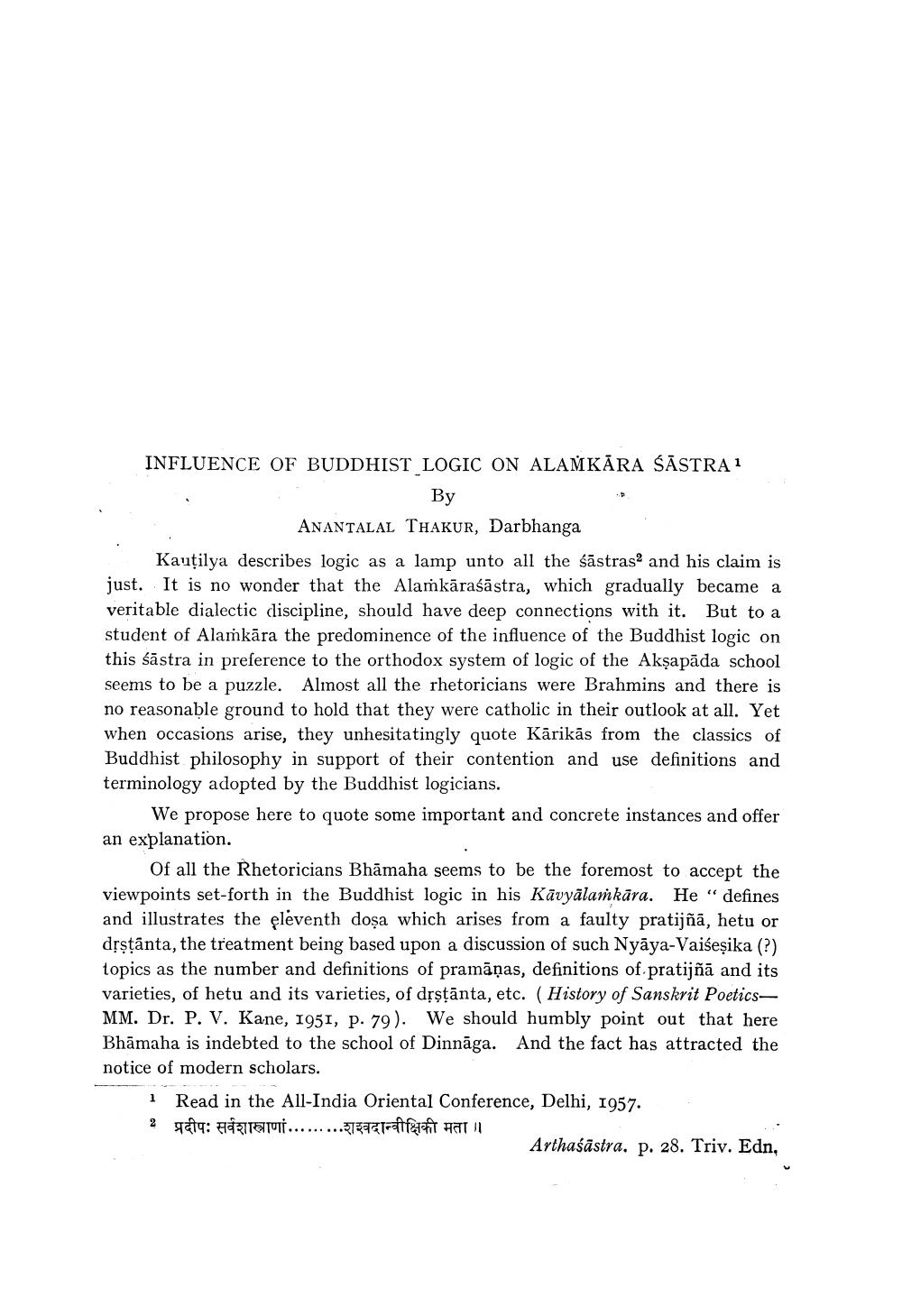________________
INFLUENCE OF BUDDHIST LOGIC ON ALANKĀRA SĀSTRA 1
By
ANANTALAL THAKUR, Darbhanga Kautilya describes logic as a lamp unto all the śāstrasand his claim is just. It is no wonder that the Alamkāraśāstra, which gradually became a veritable dialectic discipline, should have deep connections with it. But to a student of Alamkāra the predominence of the influence of the Buddhist logic on this śāstra in preference to the orthodox system of logic of the Akşapāda school seems to be a puzzle. Almost all the rhetoricians were Brahmins and there is no reasonable ground to hold that they were catholic in their outlook at all. Yet when occasions arise, they unhesitatingly quote Kārikās from the classics of Buddhist philosophy in support of their contention and use definitions and terminology adopted by the Buddhist logicians.
We propose here to quote some important and concrete instances and offer an explanation.
Of all the Rhetoricians Bhāmaha seems to be the foremost to accept the viewpoints set-forth in the Buddhist logic in his Kāvyālamkāra. He " defines and illustrates the eleventh dosa which arises from a faulty pratijñā, hetu or dpstānta, the treatment being based upon a discussion of such Nyāya-Vaiseșika (?) topics as the number and definitions of pramāṇas, definitions of pratijñā and its varieties, of hetu and its varieties, of dịştānta, etc. (History of Sanskrit PoeticsMM. Dr. P. V. Kane, 1951, p. 79). We should humbly point out that here Bhāmaha is indebted to the school of Dinnāga. And the fact has attracted the notice of modern scholars.
1 Read in the All-India Oriental Conference, Delhi, 1957. 2 yea: Haziran .........75721ffit har
Arthaśāstra. p. 28. Triv. Edn,




